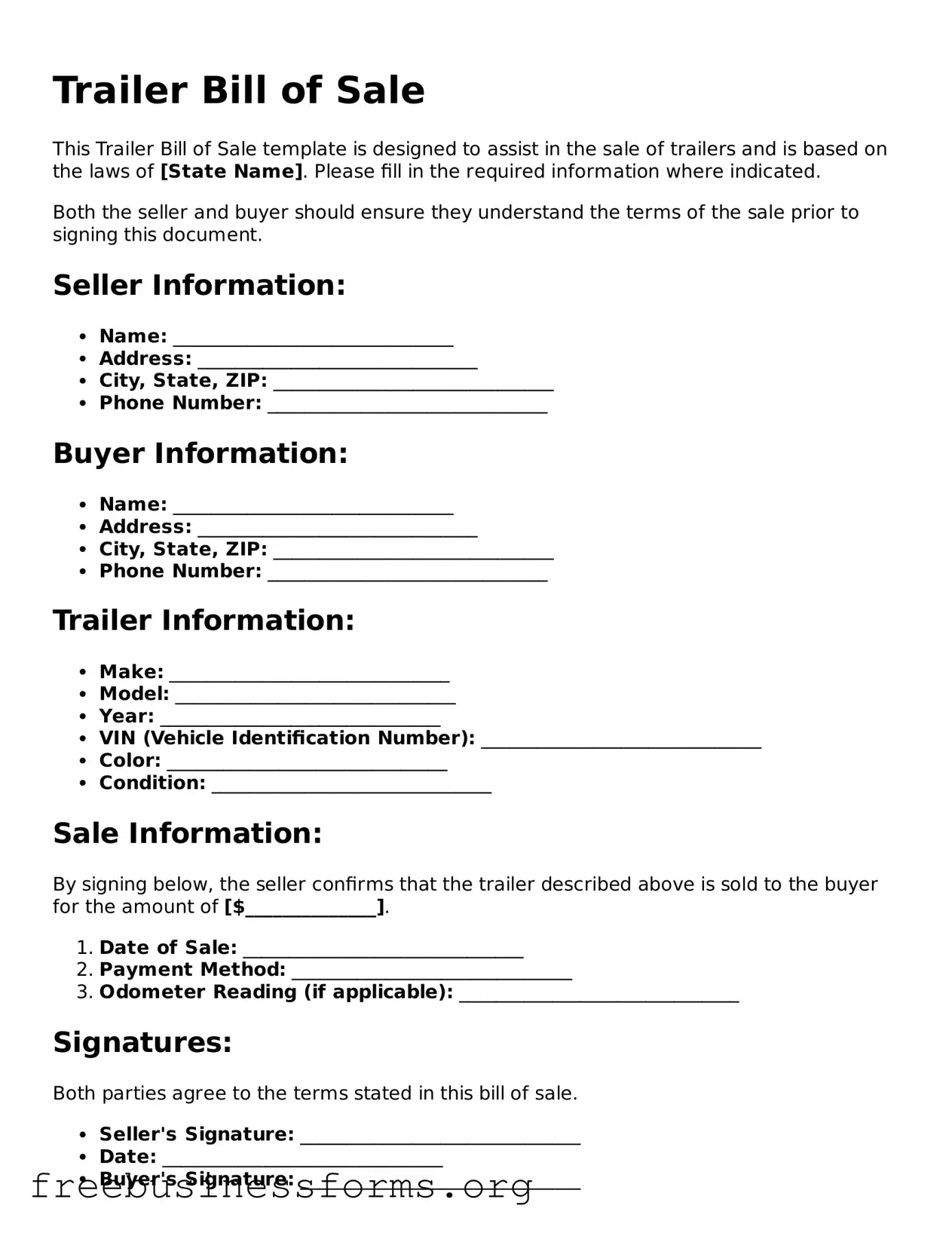Official Trailer Bill of Sale Form
The Trailer Bill of Sale form is a legal document that facilitates the transfer of ownership of a trailer from one party to another. This form serves as proof of the transaction and includes essential details such as the buyer's and seller's information, trailer specifications, and the sale price. Understanding its importance is crucial for both buyers and sellers to ensure a smooth transfer of ownership.
Open Form Here

Official Trailer Bill of Sale Form
Open Form Here

Open Form Here
or
↓ PDF File
Quickly complete this form online
Complete your Trailer Bill of Sale online quickly — edit, save, download.